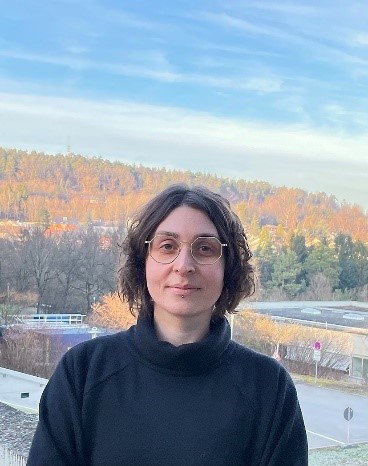Margot Raffeiner: The Plant Cell First Author

 Margot Raffeiner, first author of “The Xanthomonas type-III effector XopS stabilizes CaWRKY40a to regulate defense responses and stomatal immunity in pepper (Capsicum annuum)”
Margot Raffeiner, first author of “The Xanthomonas type-III effector XopS stabilizes CaWRKY40a to regulate defense responses and stomatal immunity in pepper (Capsicum annuum)”
Current Position: Postdoctoral Researcher in Dr. Suayb Üstün’s research group at the Center for Plant Molecular Biology (ZMBP), University of Tübingen, Germany.
Education: PhD in Plant Functional Biology at University of Potsdam (Germany), working at Leibniz Institute of Vegetable and Ornamental Crops (IGZ, Großbeeren Germany), M. Sc. in Biology at Freie Universität Berlin (Germany), B. Sc. in Biology at the Alma Mater Studiorum, University of Bologna (Italy).
Non-scientific interests: Baking, reading
Brief bio: I originally wanted to study veterinary medicine after graduating from school, but I found that molecular biology was my real passion. Serendipitously, I was not accepted into the vet sciences program, which led me to pursue a Bachelors and then a Masters degree in Biology. During this time, I did internships in a wide range of topics, but the topic that held my constant attention was phytopathology. Directly after my Masters degree, I started to work in the lab of Prof. Frederik Börnke (IGZ Großbeeren, Germany) on the functional characterization of the Xanthomonas effector protein XopS”. It was here that I was able to discover that Xanthomonas campestris pv. vesicatoria uses the effector XopS to prevent the closure of plant stomata in response to a pathogen attack, thus gaining an advantage in plant tissue invasion. Largely due to the continued support of my supervisor, my commitment to and motivation for research never faltered. I am now working as a PostDoc in the lab of Dr. Suayb Üstün (ZMBP Tübingen, Germany) on the ERC funded project DIVERSIPHAGY, and am excited to be studying the selective autophagy mechanisms during plant-pathogen interactions.



